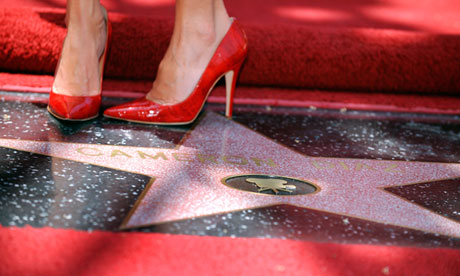
Beau Rosenwald does not immediately leap out as the kind of guy a reader would want to spend 400-odd pages with. We meet him in 1962, when he is in his mid-20s, in the Los Angeles offices of a talent agency. He is short, heavy, and sweat stains are forming crescents around his armpits as he waits for a meeting. "He had a tuberous face," the narrator of American Dream Machine, Beau's bastard son Nate, tells us, "lips damp and pursed like a trumpeter's, one eye slightly lower than the other like a disappointed hound's."
New in town from the east coast, Beau's one concession to quality is his brogues, made by Church's. The words of his mentor back in New York have clearly made an impact: "A man is judged by his persistence, his substance, and his shoes."
There is little Beau needs to learn about persistence. As an agent, representing Hollywood actors, he wears down studios to get the best deals for his clients ("that gentle badgering that was like being cuffed, relentlessly, with damp towels"). He somehow convinces women, way out of his league, to sleep with him. He wins us over, too, with his tenacity, ebullience and – strangely for his line of work – his honesty.
Matthew Specktor, the book's author, has set out with Beau to create a protagonist in the spirit of Saul Bellow's Augie March or F Scott Fitzgerald's Jay Gatsby. We follow the peaks and valleys of his life from the 1960s up to almost the present day. His story is partly a family drama – or at least a meditation on fathers and sons: as well as Nate, Beau also has a "legitimate" son, Severin – but it also encompasses a broader narrative of how Hollywood and the movie business have changed in the past half century.
Specktor is certainly on solid ground in this latter aspect. His father, Fred Specktor, is an agent at Creative Artists Agency (CAA), whose clients include Robert De Niro and Gene Hackman. He is the type of heavy-hitter who permanently has a table set aside for him at the poweriest power restaurant in LA. Specktor himself has previously worked in film development and continues to write screenplays while also working as a senior fiction editor at the Los Angeles Review of Books. Specktor denies that Beau's agency, American Dream Machine, is a tweaked replica of CAA, but he certainly depicts the industry with a vivid, unerring eye.
American Dream Machine skips along easily, which is impressive considering the brilliant and wacky details that Specktor has packed in. Most of the movie stars are fictional, but there are cameos from the likes of Jack Nicholson and George Clooney, and the overall impression is of an exposé, but one written with fondness. Hollywood always looks better from a distance of a few decades, and the novel is never more enjoyable than when depicting Beau's shambolic foray into movie-making, "The Dog's Tail", and the creation of American Dream Machine, both in the 1970s.
If there is an overarching message, it is that this town always subsumes the individual, however high they fly. It is 30 years since William Goldman's Adventures in the Screen Trade, and American Dream Machine serves up some similarly enduring lessons. "One thing you must know about Hollywood," Nate tells us. "Slow fucking is what they do best."

